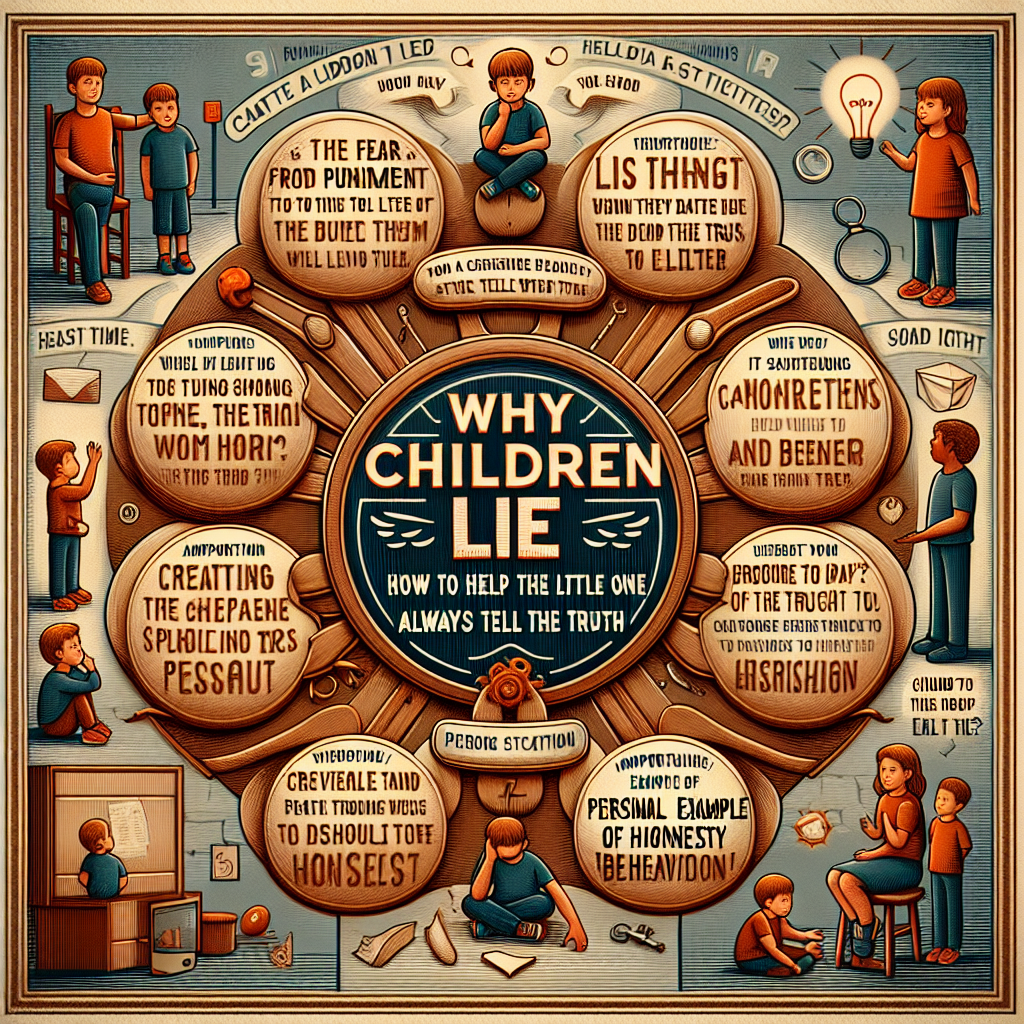Why Kids Lie: How to Help Your Little One Always Tell You the Truth
Introduction
Lying is a stage most children go through at some point. It's a behavior that worries many parents because it means their little ones are trying to hide the truth or create an alternate reality. But why do children lie and what can parents do to build a relationship based on trust and honesty? This article provides a comprehensive guide to why children lie and ways parents can encourage honesty.
The Reasons Behind Pretty Little Liars
Cognitive Development
Children lie for various reasons, but one important perspective is that of cognitive development. Around the age of three, children begin to mentally develop the concept of "me" separate from others. This makes them understand that parents and others do not know everything that is going on in their minds, which can lead them to experience lying.
Avoidance of Punishment
Another common reason is the desire to avoid punishment. When the child has done something wrong and fears the consequences, lying may seem like the easiest escape. This is reinforced by the parents' reactions to the child's antics, so it is essential to strike a balance between discipline and understanding.
Desire To Protect Their Privacy Or Feelings
As they grow, children begin to want more independence and privacy. They lie to keep a secret or to protect their or other people's feelings. It is a natural phase in their social and emotional development.
Rich Imagination
Young children have very rich imaginations and sometimes the difference between reality and fantasy can be blurred for them. They may not be lying on purpose, but simply sharing a story from their imaginary world.
How to Encourage Honesty
Open Communication
Parents must build an open and honest communication relationship with their children. Explain the importance of honesty in terms the child can understand and listen to what they have to say without immediately judging them. This approach can make children feel more comfortable sharing the truth.
Model Your Behavior
Children learn by imitation, so it is crucial that parents set an example of honesty. If little ones see you lying, even in seemingly insignificant cases, they will think that this behavior is acceptable.
Avoid Labeling Your Child a "Liar"
Labeling your child a "liar" can damage their self-esteem and even encourage more of the behavior you're trying to discourage. Instead, focus on the facts and discuss specifically valued actions, not the child's personality.
Rewards For Honesty
When the child tells the truth, he should be praised or even rewarded. This motivates them to continue to be honest and builds trust between child and parent.
Use Stories And Games
Stories and games can be great tools to teach children about the importance of honesty. Books and activities that incorporate moral lessons can be fun and educational at the same time.
Logical Consequences, Not Harsh Punishments
Instead of resorting to harsh punishments, which can lead to more lies, it is more effective to apply logical consequences. So if your child is lying about not doing their homework, the logical consequence would be to give them more time to study, not punish them.
Conclusion
Understanding why children lie is the first step in helping them become honest and confident individuals. Through open communication, modeling behavior, avoiding labels, rewarding honesty, and using creative resources, parents can successfully address this challenge. It is important to remember that honesty is learned over time and requires patience and consistency on the part of parents. Creating an environment where your child feels safe to express their feelings and thoughts is key to honest and healthy communication. Don't forget to visit our store for books and games that help encourage honesty in children, or subscribe to our newsletter for more tips on parenting and child development.














































































































































